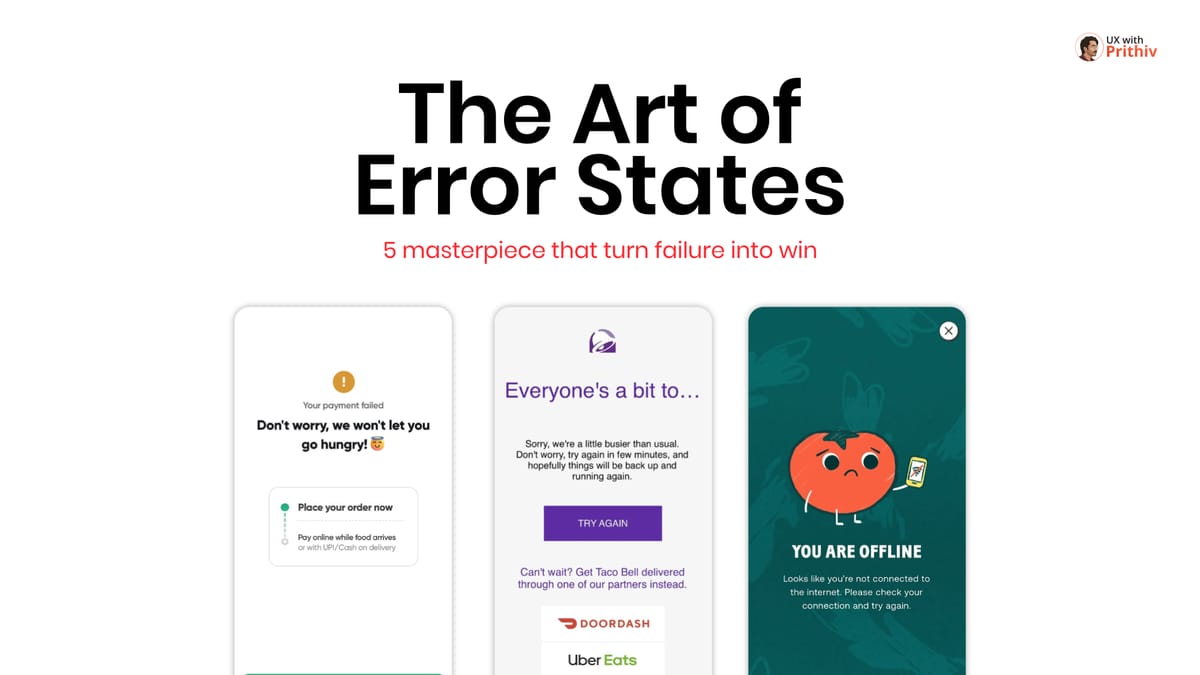In the world of user experience (UX) design, even the most meticulously crafted interfaces encounter bumps in the road. That’s where empty states and error displays come in — those screens users see when things don’t go according to plan. Believe it or not, these seemingly insignificant elements can make a big difference in user experience.
Why Empty States & Error Displays Matter:
- Preventing Frustration: Clear and helpful messages on empty states and error displays can prevent users from feeling lost or confused.
- Maintaining Engagement: A well-designed empty state can encourage users to take further action, while a humorous error message can even maintain a positive user experience.
- Building Trust: Professional and informative displays show users that you’ve considered all scenarios and are there to guide them.
Designing Effective Empty States & Error Displays:
- Clarity is Key: Keep your message concise and easy to understand.
- Offer Solutions: Provide helpful suggestions to get users back on track, whether it’s a call to action or a link to relevant information.
- Maintain Brand Voice: Even in error situations, let your brand personality shine through in a way that’s consistent and reassuring.
- Consider Visuals: Use illustrations or icons to add a touch of personality and break up text.
Examples & Inspiration:
To spark your creativity, we’ve included a few resources to inspire your empty state and error display design:
- Empty States: The Most Overlooked Aspect of UX: https://www.toptal.com/developers/local/united-states — A comprehensive guide on designing user-friendly empty states.
- A List Apart: Designing for Error — https://alistapart.com/article/writing-for-the-web/ — Insights on crafting informative and engaging error messages.
- Dribbble — Empty States: https://dribbble.com/tags/empty%20state — A collection of beautiful and creative empty state designs for inspiration.
Turning Setbacks into Stepping Stones:
By taking the time to design effective empty states and error displays, you can ensure that even when things go wrong, the user experience remains positive and productive. These well-crafted elements can build trust with your users and demonstrate your commitment to a seamless user journey.
Stay tuned!






Comments